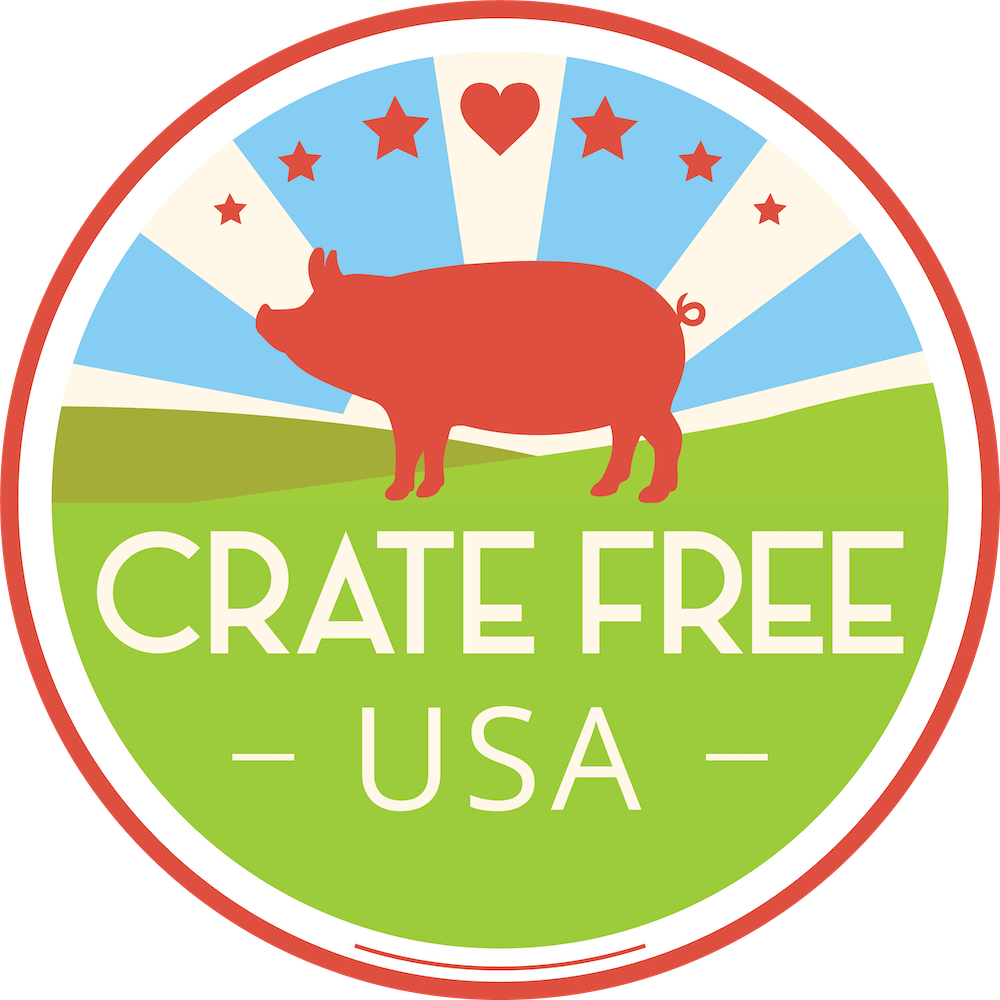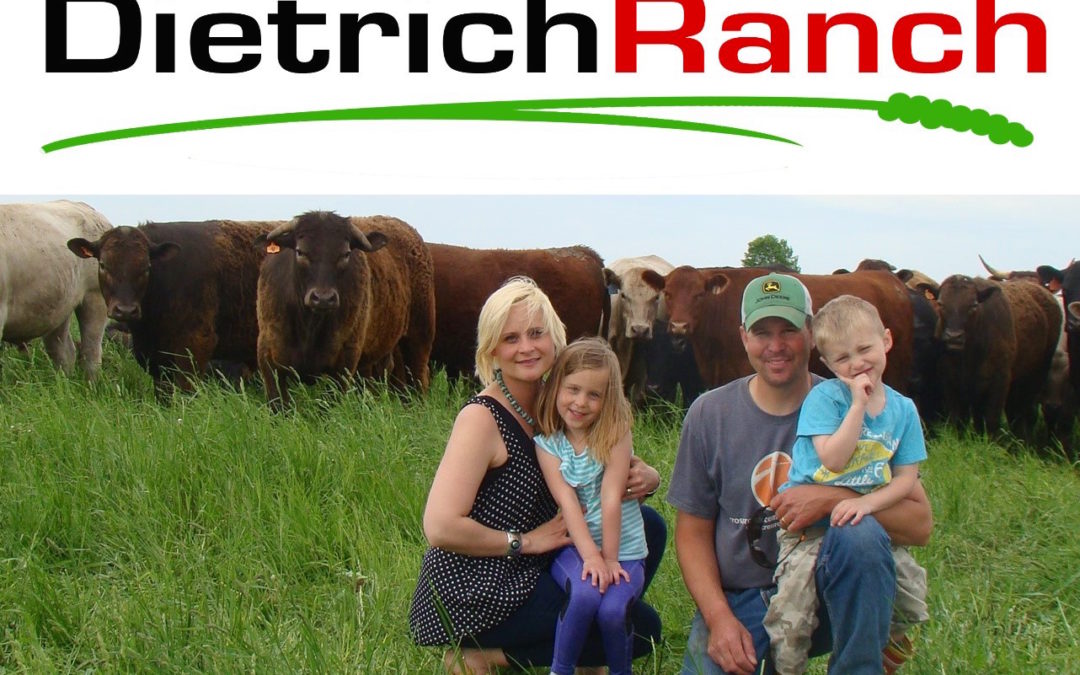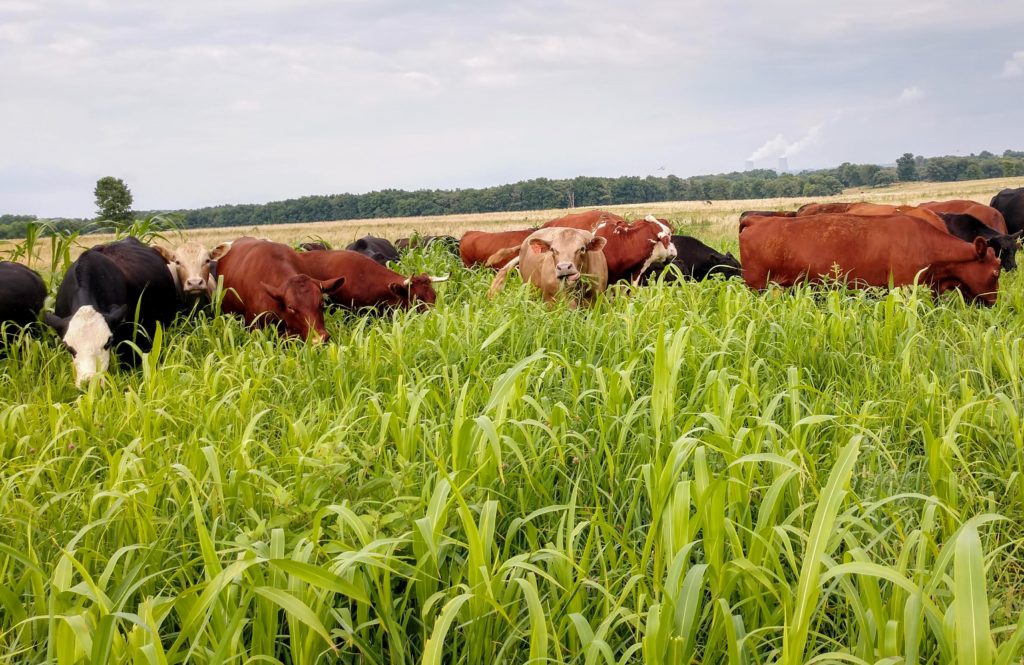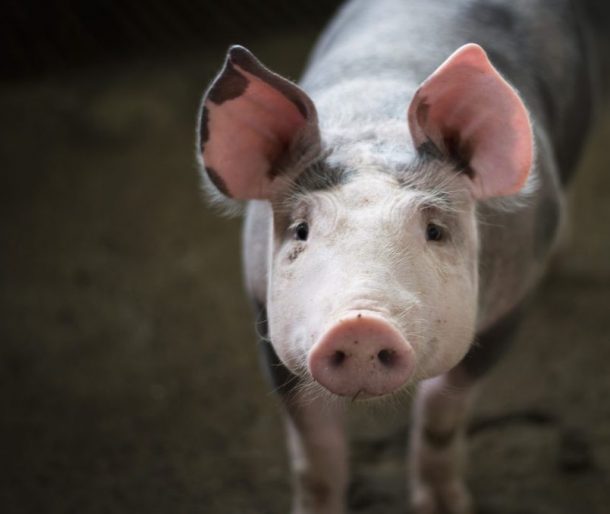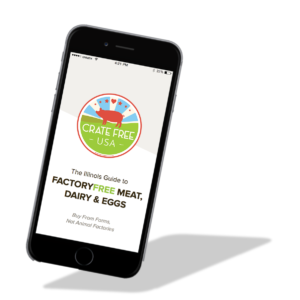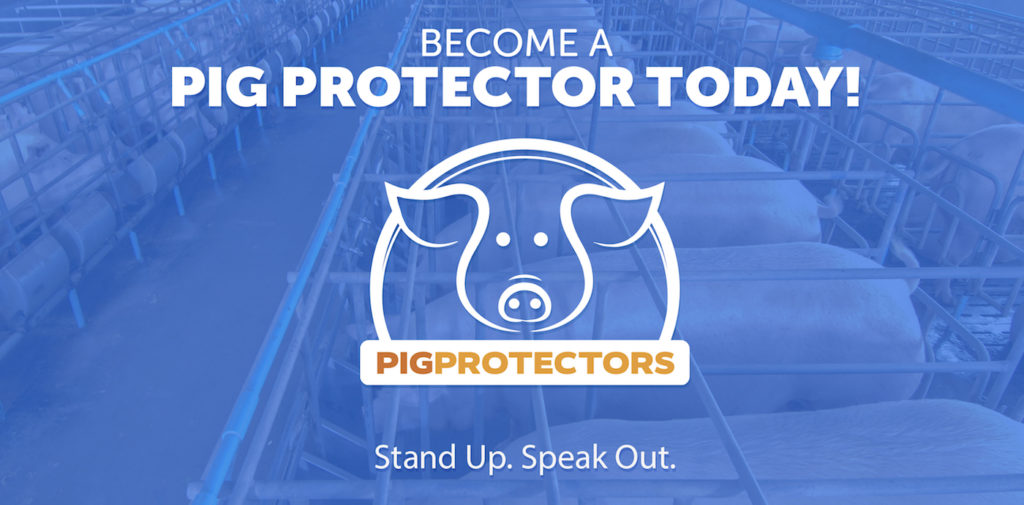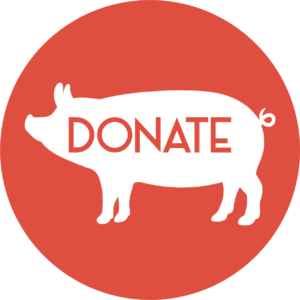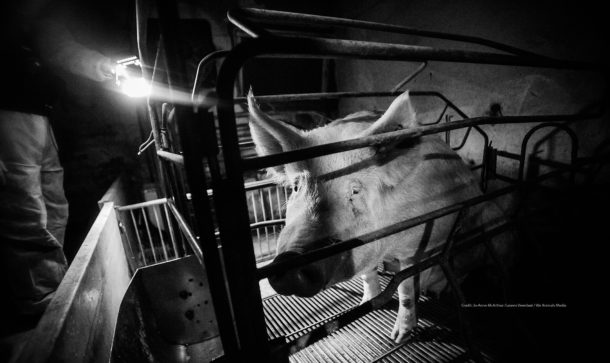The Dietrich Ranch in Central Ogle County, Illinois, has been in operation since the 1940’s when their great grandfather bought the property. They raise 100% grass-fed beef, lamb, and free range pastured chicken. All of their animals are raised without use of chemicals, antibiotics, or hormones. In large contrast to industrial confinement meat production, their animals are given a healthy dose of fresh air, sunshine, and space.
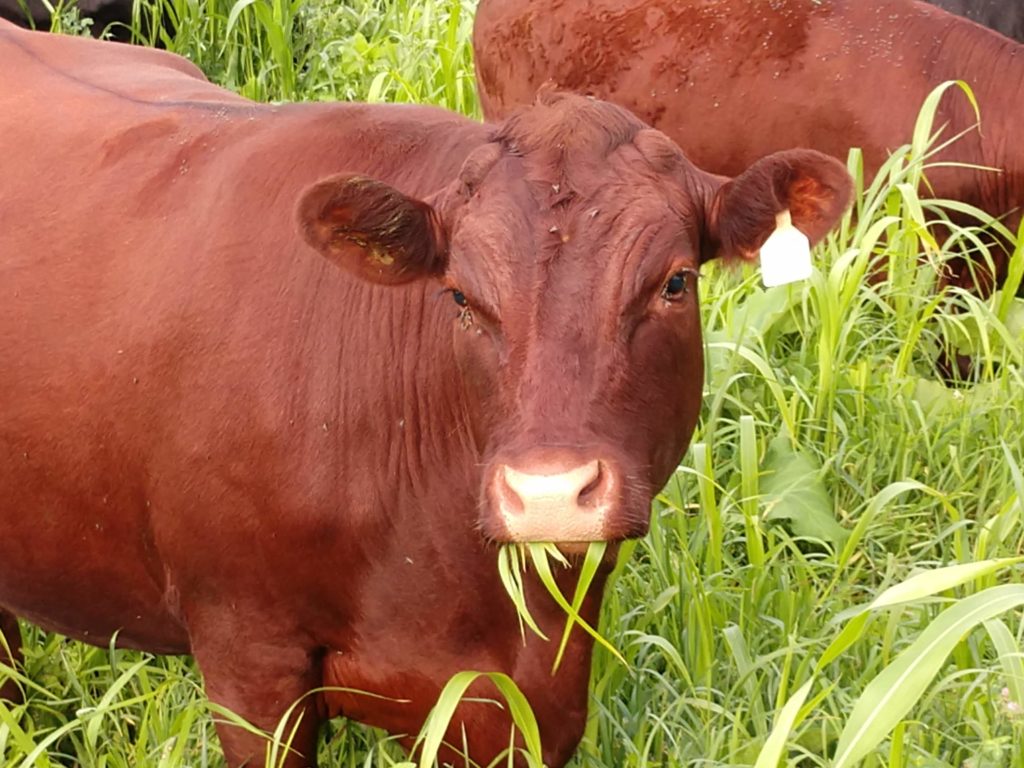
Q & A with Sustainable Farmer Dan Dietrich
Tell us about your farm?
We are a small farm, with quality at the top of our list. Our grass-fed pasture system is ideal for the animals and the environment. Our animals live naturally on our pastures, grazing the forages growing in our fields. In the summer, we harvest the excess growth and feed it as hay in the winter. The animal wastes return to the land and become nutrients for the next grass cycle.
There is NOTHING you can find in the supermarket that can match the flavor and purity that nature builds into our food products. Our fields are pristine, and our rotational grazing system provides our animal with fresh forages day by day. We grow our food in a way where there’s nothing to hide. Folks are always welcome to make an appointment to come out for a farm visit!
How did you get into farming?
My Dad had a farrow to finish hog operation, my uncle had a 60 cow dairy farm, and my grandpa raised the calves produced from the dairy farm, and had a few beef cows. Crops such as corn soybeans, oats, and alfalfa were raised on the land most of which was harvested and fed to the livestock enterprises. I was blessed to be exposed to so many different enterprises and experiences.
I also cherished working with the guys. As a kid the work was fun and productive at the same time it really instilled some great values that have shaped my character.
It’s unfortunate that in today’s world with the decline of so many diversified family farms that kids miss out on these experiences. By the early 2000’s many small, family farms were in decline. Many farm businesses had to specialize and double or triple production to stay in business. My dad and I could never quite agree on the best future course for our operation. He was and still is in the last stages of his farming career. Any sort of major change does not appeal him. In 2005 I got an off-the-farm job at the county highway department as the farm was unable to support me. With the elder generation slowing down, I was forced to adapt or die. After some reading and taking some short courses a holistic, pasture based livestock production model revealed to be the ideal fit. In 2008, in spite of some resistance from dad and grandpa, I seeded 100 acres of previously crop ground to grass/legume pasture connecting all the permanent pasture together thus creating a 200 acre grazing cell. This is how Dietrich Ranch was born.
Our mission is simple: To honor the natural design, by managing the plants and animals in a sustainable manner to bring health and healing to the land, the livestock, and the consumer.
Tell us about the landscape and layout of your farm?
The fields all have high tinsel or woven wire perimeter fences. These areas are then subdivided with portable poly-wire and step-in posts to form smaller paddocks. Its a beautiful sight looking over the fields of lush green grass bow and bend in the wind across the gently sloping landscape. There are two running streams that flow year round one on each end of the grazing cell. Most of the pastures are open but do have a section of thick woodlands in the middle of the grazing cell. We have noticed a resurgence of wildlife consisting of deer, turkey, various birds, and insects just to name a few. The soil is improving in health and water holding capacity due to increased organic matter and soil life below the surface. A few years ago a spring starting flowing in a dry gully that runs through the woods.
What kind of animals do you have?
Currently we have cattle and sheep. We’ve been raising 100% grass-fed beef for the last ten years. We are transitioning from a conception to finish beef enterprise to specializing in growing and finishing 100% grass-fed beef. Our improved grazing practices has caused increased quality of forage produced that has made utilizing that forage through a finishing animal more economical than breeding stock. We also run anywhere between 100 – 300 head of sheep on the farm that we custom graze for a Dekalb County lamb producer. The sheep add diversity and utilize forage and brush the cattle would otherwise reject.
Is it cage free, pasture raised, both?
Yes, everything is cage free and pasture raised.
Do you supplement fresh grass with feed? What kind?
Only Redmond sea salt and conditioner for the cattle and sheep. There are no hogs or chickens on the farm at this time.
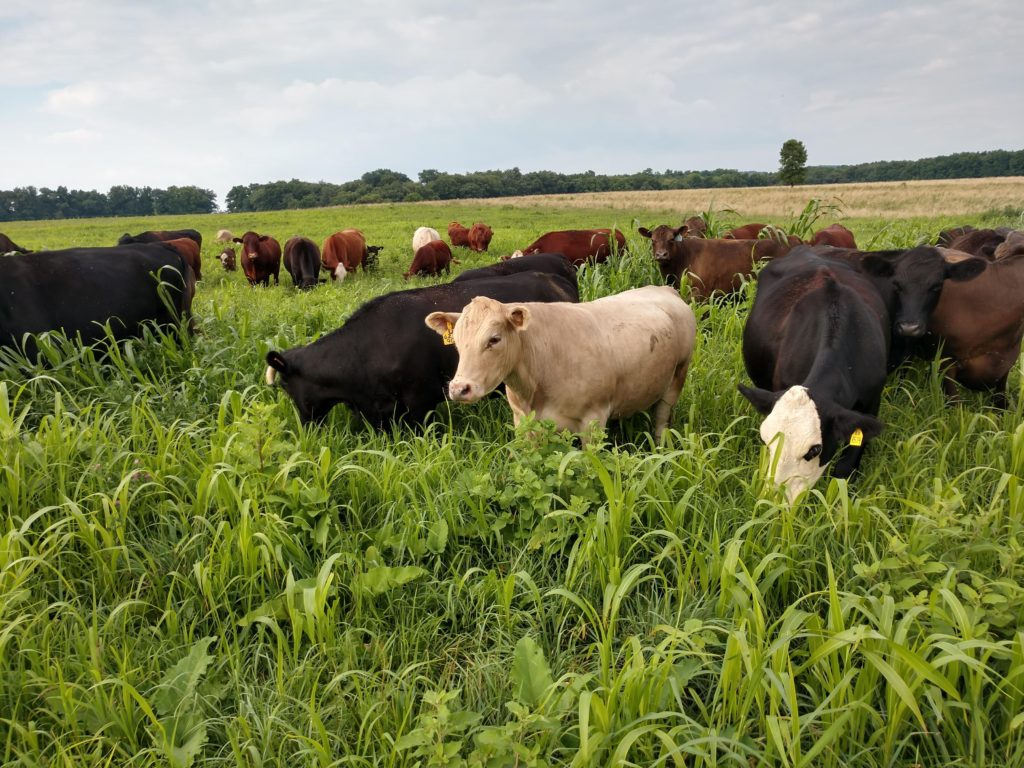
Why is farming sustainably and humanely important to you?
This is very simple. It’s rewarding to see God’s creation in the form it was meant to be. There is beauty there. These days there are so many distractions that people miss out on the beauty of nature happening all around us. It’s too simple almost. Animals can work. They want to work for us.
Confinement imprisons livestock and the manager because now the worker needs to support the livestock instead of managing an environment where the livestock can thrive on its own which later supports humans. This is contrary to what is being taught. An emphasis has been put on profit, not health. This production model, though suggests it’s feeding the world, is only a myth. There are still plenty of hungry people in this world and those the industrial system is feeding is suffering from a health crisis. It is imperative that the food industry begins to operate more in line with the natural design in order to restore health and healing to the land, livestock, and consumers.
How do you compare animals raised for food like yours to the meat you get at most supermarkets?
The biggest deception is that most families buy meat at the supermarket under the assumption that it comes from healthy animals.
The reality is that almost all supermarket meat comes from government-sanctioned feedlots, where animals are fattened with feed and practices that are perversely unnatural and clearly unhealthy. Producing the most meat in the shortest period of time at the lowest possible cost is the only priority.
But consumer demand for that meat would drop dramatically if the production process was transparent. As a result, feedlots are ALWAYS in remote locations. Public access is strictly forbidden. Without real images, we’re left to imagine supermarket meat comes from animals lounging on sunny green pastures. That’s not the case.
The truth is that close to 100% of non-organic meat sold in grocery stores and delis comes from animals that were routinely fed antibiotics OR Genetically Modified (GMO) corn and soy OR feed that was heavily exposed to glyphosate, the active ingredient in “Roundup” OR all of the above, in many cases.
Then add crowded, stressful, unsanitary conditions on top of that, and you have a snapshot of how factory meat products destined for supermarkets are mass produced. Unhealthy animals lead to unhealthy meat products and ultimately, health issues in people.
You can look the other way and buy supermarket meat for your family, or you can buy your meat from a farm like ours, where natural feeds (grass!) and practices are used AND you are welcome to visit.
Our meat will cost more than supermarket meat, because it takes more hours and calendar time to raise animals naturally. However, it’s not a true comparison because they are not equivalent products, both in terms of the bountiful healthful components in our meats, and in terms of the “contaminants” that are missing from our meats.
How have the economics of farming changed in the last several years? What further changes are you anticipating?
Gross margins/unit have largely decreased forcing producers to scale up or find niche markets where larger margins can be realized to remain profitable. To the detriment of heath to the land, the livestock, and many workers, and ultimately the consumers, most producers chose to scale up which has lead to the animal confinement operations paradigm which most of the livestock industry currently operates.
Would you support a bill to end extreme confinement? Why or why not?
Great question! I’m still undecided even after giving this some thought. The easy answer is I would morally support such a bill, but not financially. Morally, there is no question that gestation crates should be outlawed! The real question is how best to make this change. I for one am of the belief the government is already too involved in private business affairs. I believe resources of time and money would be better spent on education and informing consumers rather than taking on lobbyist. The fact of the matter is the industry has greater recourses, though a volunteer organization may be a pain in their side for a period of time, it would only be a matter of time before the machine would wear down such efforts to the point an organization like this may be non existent.
What do you expect the economic implications for Illinois would be if we could ban gestation crates?
The economic implications for Illinois would be very minor at best. It would only affect the large scale pork producers and force a change to the production protocol.
How do you market and sell your products? Direct to consumers, CSA, through retailers?
We have a three tier system:
- Wholesale
- Direct bulk sales, quarters, halves, and wholes
- Direct retail where we have individual cuts available to order online
To find Dan’s farm on the Crate Free Illinois app search for Dietrich Ranch.
More Info
Dietrich Ranch
Dietrich Ranch on Facebook
Author bio
Lisa Lubin is an established travel/food writer and photographer, three-time Emmy®-award winning TV producer, video consultant, and travel industry expert. After more than a decade in broadcast television she took a sabbatical, and traveled around the world for two years. She blogs at LLworldtour.com (since 2006). Lisa also owns LLmedia, a media & video consulting business. Lisa joined the Crate Free USA team in August 2016 and is the Executive Director. She is passionate about animals and lives on the northside of Chicago with her rescue cat, Bug.
